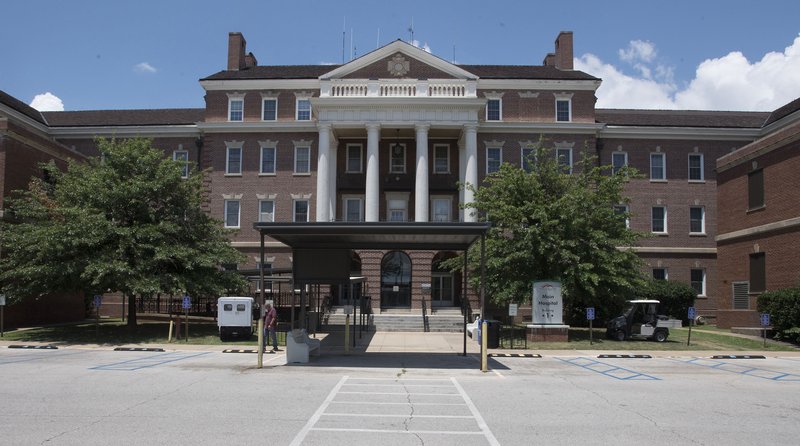FAYETTEVILLE -- The trial in one of eight lawsuits against the Veterans Health Care System of the Ozarks related to missed diagnosis by a former pathologist began today in federal court with two hours of testimony from the deceased.
Jerry R. Kolpek, 83, of Bella Vista had his prostate cancer diagnosis missed by Dr. Robert Morris Levy, according to his estate's lawsuit. Levy reviewed the pathology materials and incorrectly found the prostatic tissues to be benign, the lawsuit states.
Levy served as chief pathologist at the Veterans Health Care System of the Ozarks in Fayetteville until he was suspended after a March 1, 2018, arrest in Fayetteville for driving under the influence. He was later fired before being indicted after a U.S. Veterans Department investigation concluded Levy had worked while intoxicated for years.
"As a result, there was a six-year and four-month period of delay between when Mr. Kolpek's cancer had been present and diagnoseable and when he was made clinically aware that the biopsy examined by Dr. Levy on January 30, 2012, was positive for cancer," the lawsuit says.
Kolpek died of prostate cancer Dec. 31, 2020.
The U.S. Department of Justice has argued the system wasn't negligent for employing a pathologist who worked while intoxicated. The same Justice Department successfully prosecuted the pathologist for involuntary manslaughter last year.
Levy pleaded guilty in June of last year to one count of manslaughter for missed diagnoses. He was sentenced in January to 20 years in federal prison.
The suit over Kolpek's death is the first of eight filed brought by survivors of five veterans who died and three surviving veterans. Each filed suit after Levy missed the diagnosis in his case. The bench trial before U.S. District Judge Timothy Brooks is expected to end Tuesday.
The family seeks at least $15 million in damages. Attorneys for the government do not deny that the family is due compensation, but not to that amount, they said.
Levy's DUI arrest triggered a yearlong review of 33,902 pathology results by him, which found 30 missed diagnoses posing serious health risks to patients from 2005 to 2017.
The review by outside pathologists discovered 3,029 errors, but concluded few of those mistakes carried lasting, serious consequences. Those 3,029 errors out of 33,902 cases made for an error rate of 8.9% compared to a pathology practice average of 0.7%, the review found.
"I can't change a lightbulb," Kolpek told an investigator for the Office of Inspector General for the U.S. Department of veterans Affairs who interviewed the victim on February 26, 2018 at his home in Iowa.
After the Fayetteville VA notified him of the missed diagnosis from six years previously, Kolpek went to the VA hospital in Des Moines, Iowa. Doctors there told him the cancer has spread throughout his bone structure from the base of a skull through his pelvis, into his spine and rib cage.
A car accident that would deploy his airbag would be enough to shatter his rib cage piercing his lungs and kill him, his doctor advised. Overnight he went from being active and traveling to being home bound.
Evidence and witness testimony the Justice Department gathered or used against Levy is cited extensively in each of the wrongful death lawsuits. The evidence includes a U.S. Department of Veterans Affairs Office of the Inspector General's report that said investigators found a culture at the health care center in which staff did not report serious concerns about Levy, in part because of a perception that others had reported or they were concerned about reprisal.
"Any one of these breakdowns could cause harmful results," the report reads. "Occurring together and over an extended period of time, the consequences were devastating, tragic and deadly."
Levy was in charge of the quality management program of his own department, the inspector general found. This situation went on for 12 years, the report noted.

